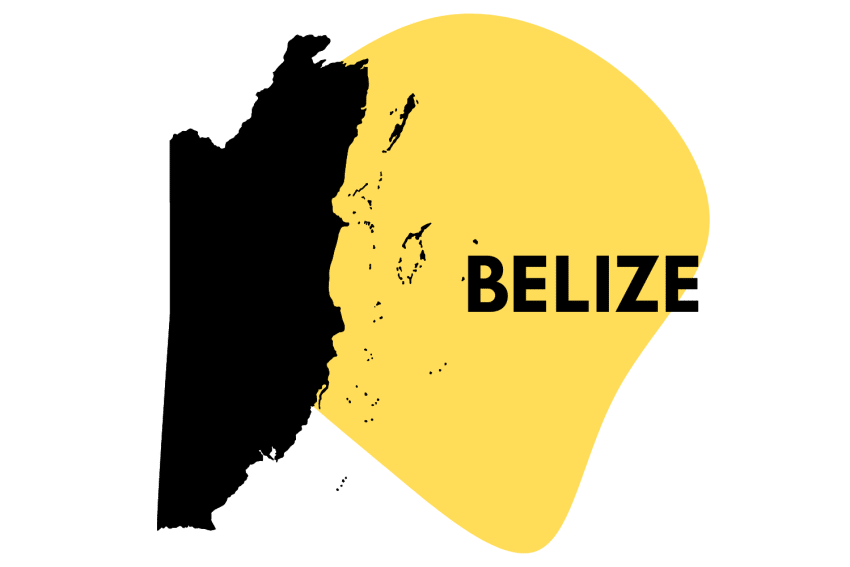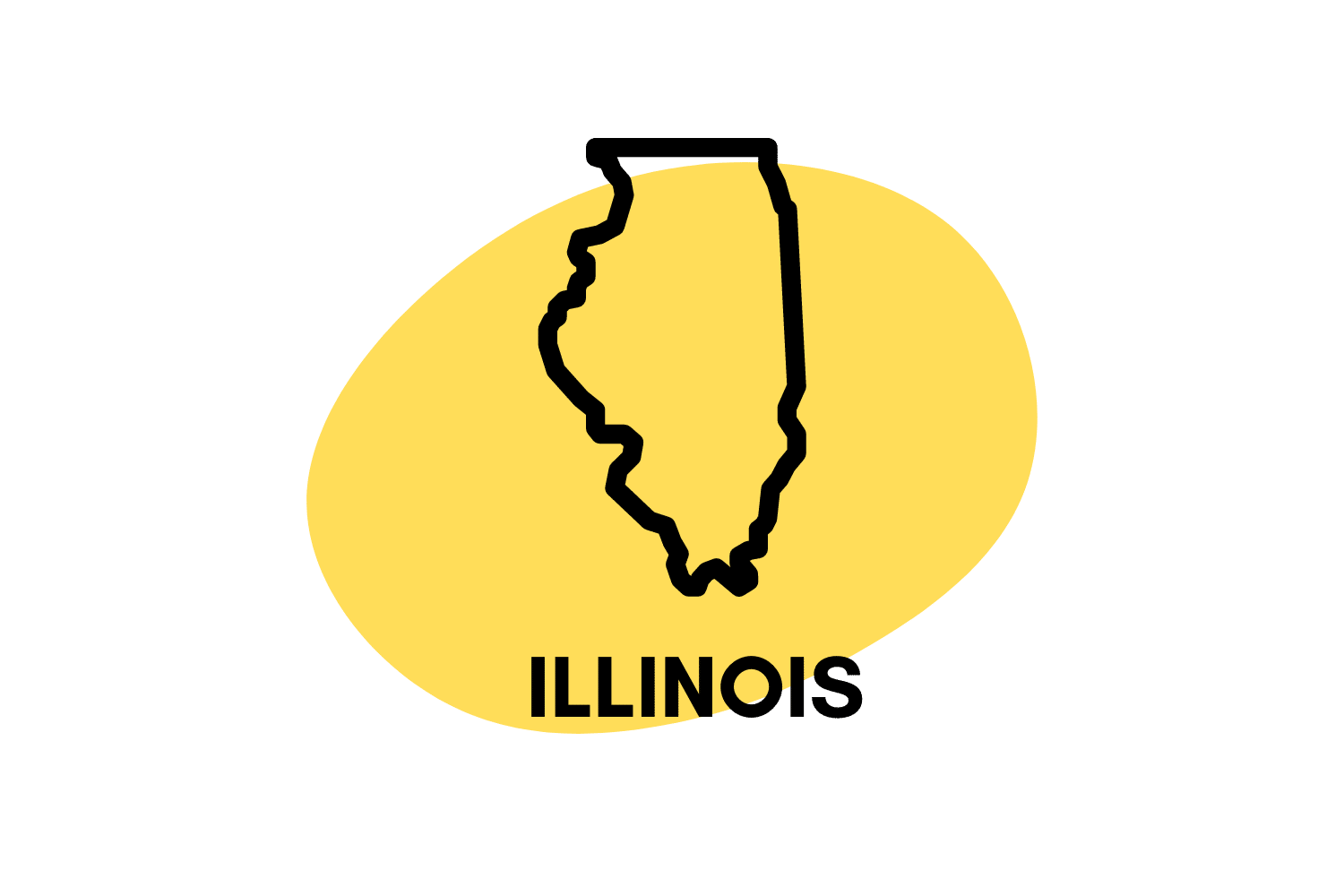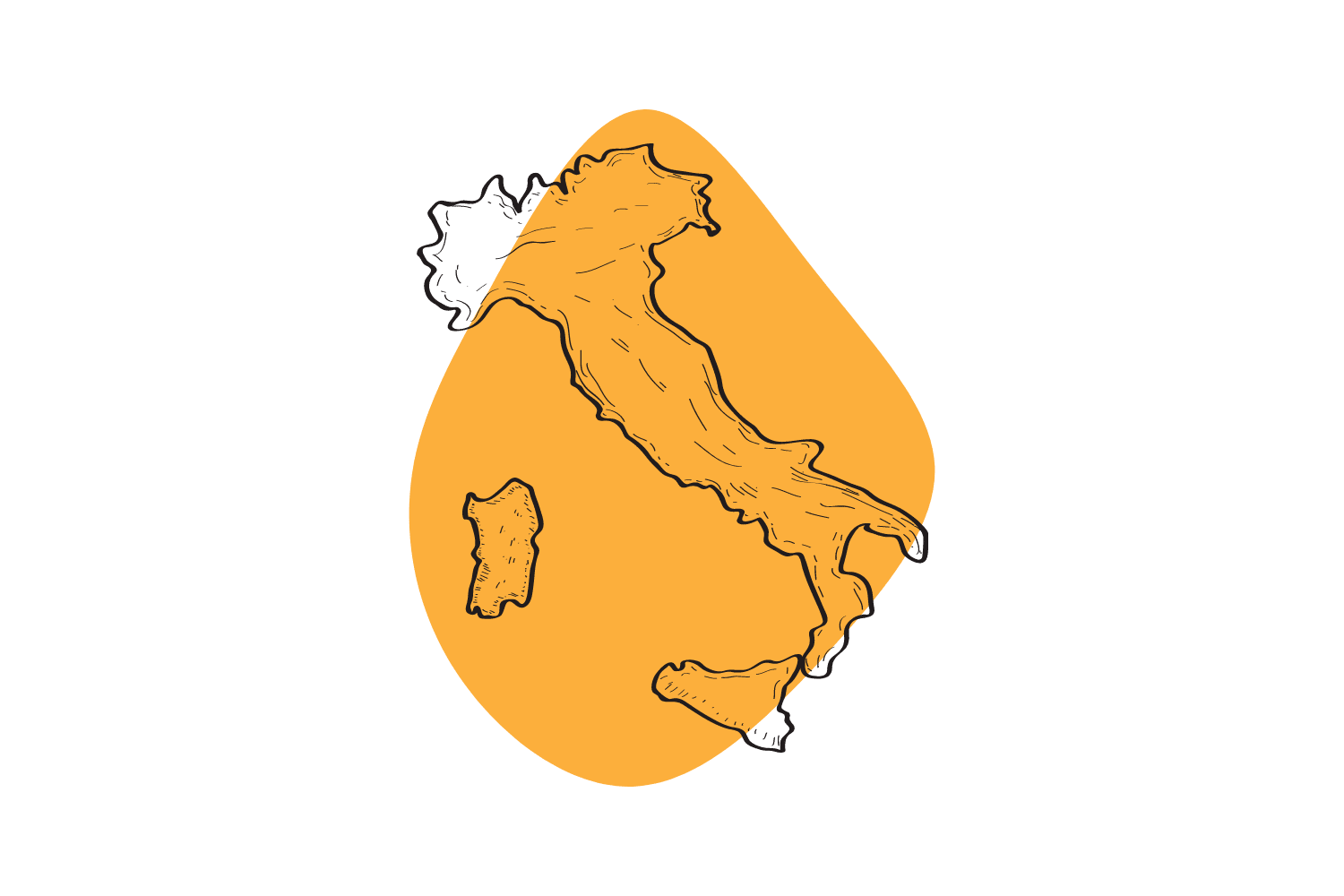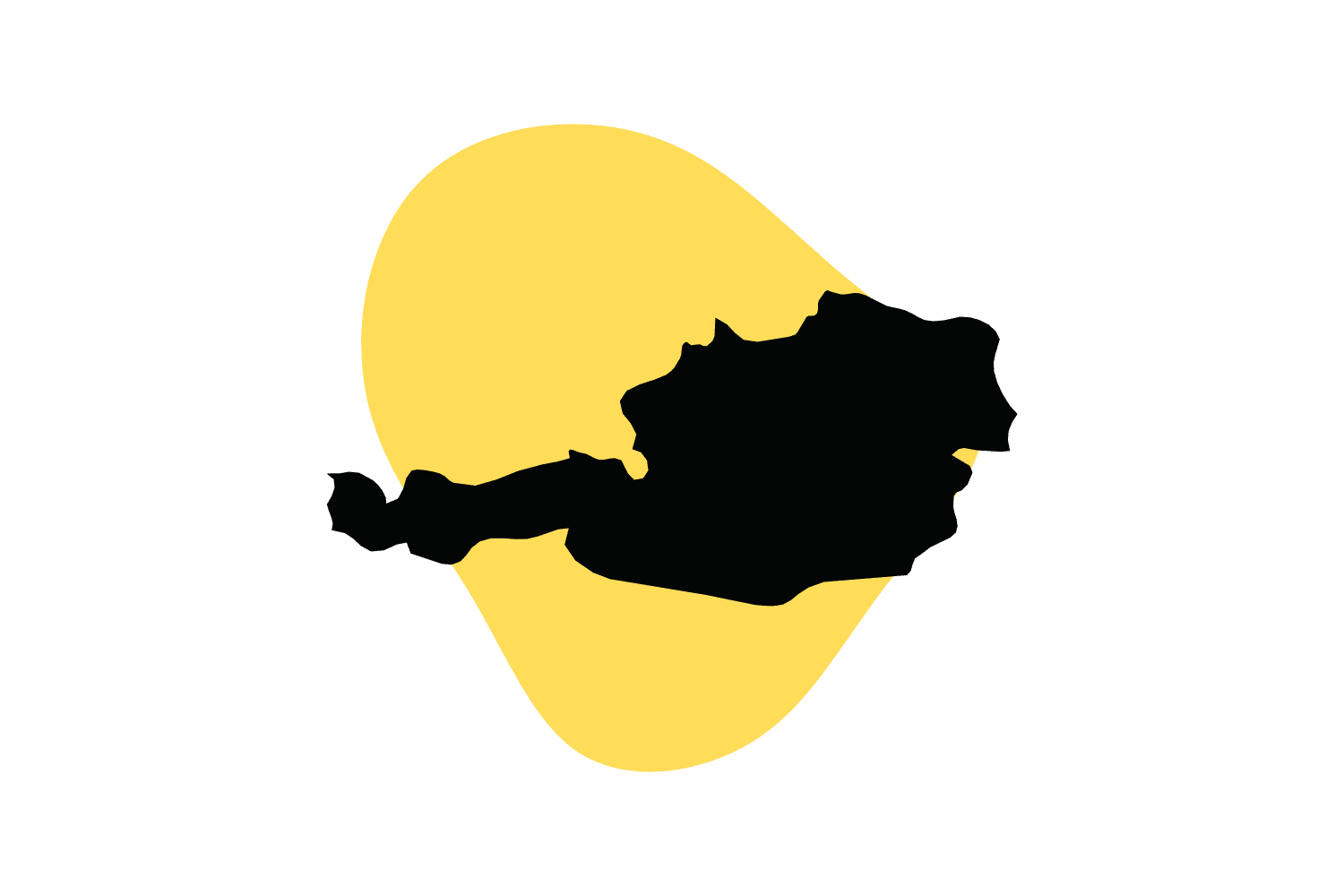How Does Decriminalization Affect Crime? (Analyzing Portugal)
If you want to learn how decriminalization affects crime rates, the best case study is Portugal — a country that decriminalized all drugs in 2001 when drug use and crime were at their worst.
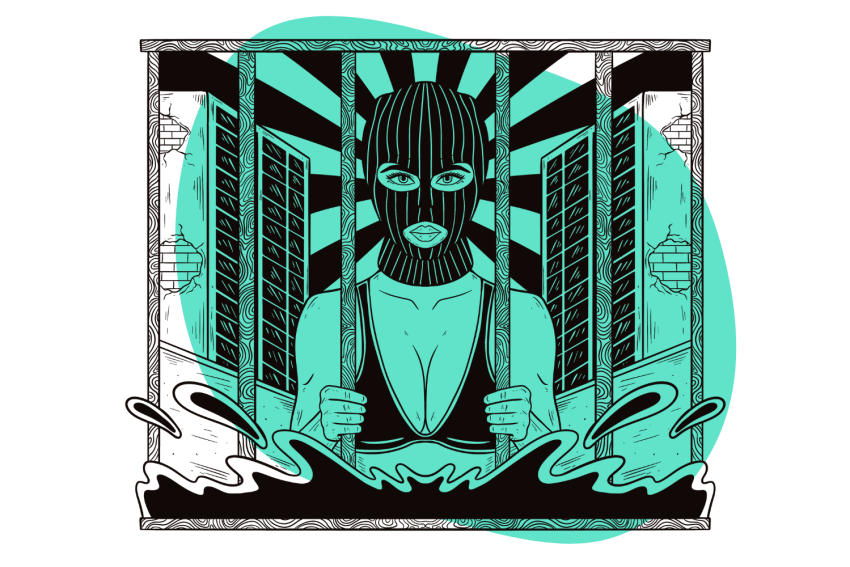
Portugal decriminalized all drugs back in 2001, but that doesn’t mean they’re legal, and buying them still carries some risk.
In the United States, people seem convinced that decriminalization would lead to rioting in the streets, but that’s not what I saw while I was in Lisbon.
Instead, I saw a lovely city with a thriving art scene and rich history that made me feel comfortable walking around at midnight. Can Portugal’s favorable stats on crime indicate the success of decriminalization, or is it simply a coincidence?
Related: Psychedelic Drug Laws in Portugal
General Crime Stats in Portugal
The Institute for Economics and Peace ranked Portugal as the 6th most peaceful country in the world. This is out of 163 countries, and the United States, for whatever it’s worth, ranks at #129, making it significantly more dangerous than Portugal.
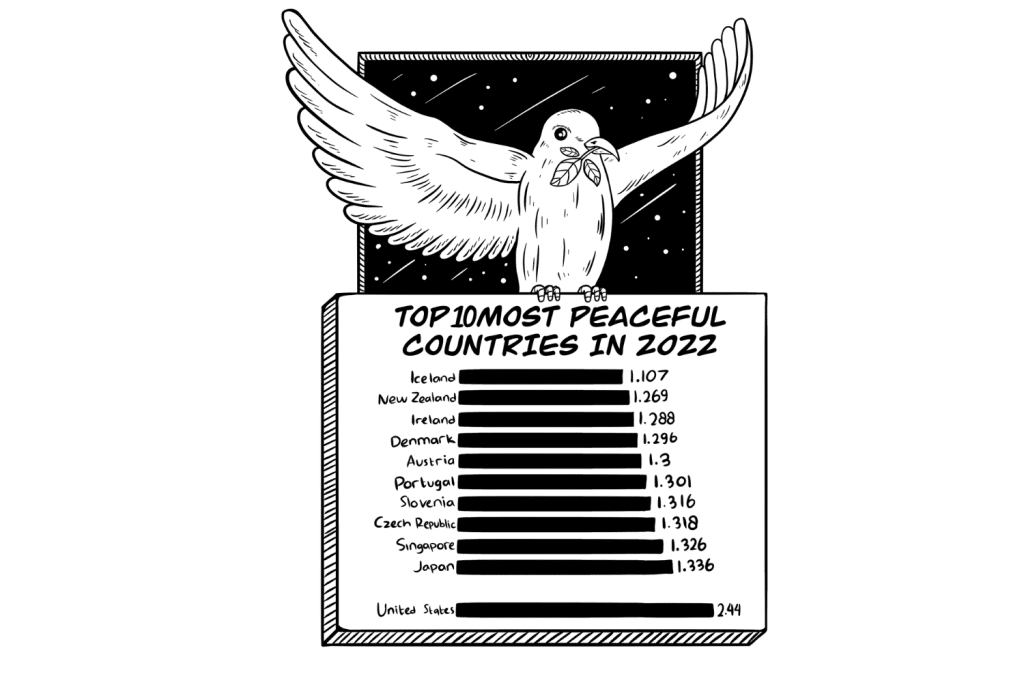
The crimes that still occur in Portugal are frequently non-violent and typical of areas with dense populations of tourists. This consists of non-violent street crimes like petty theft, pickpocketing, and vehicle break-ins.
Decriminalization was not a magic switch that turned off crime, however. There was an adjustment period in which crime did rise for about the first five years. After that time, things balanced and began falling back down.
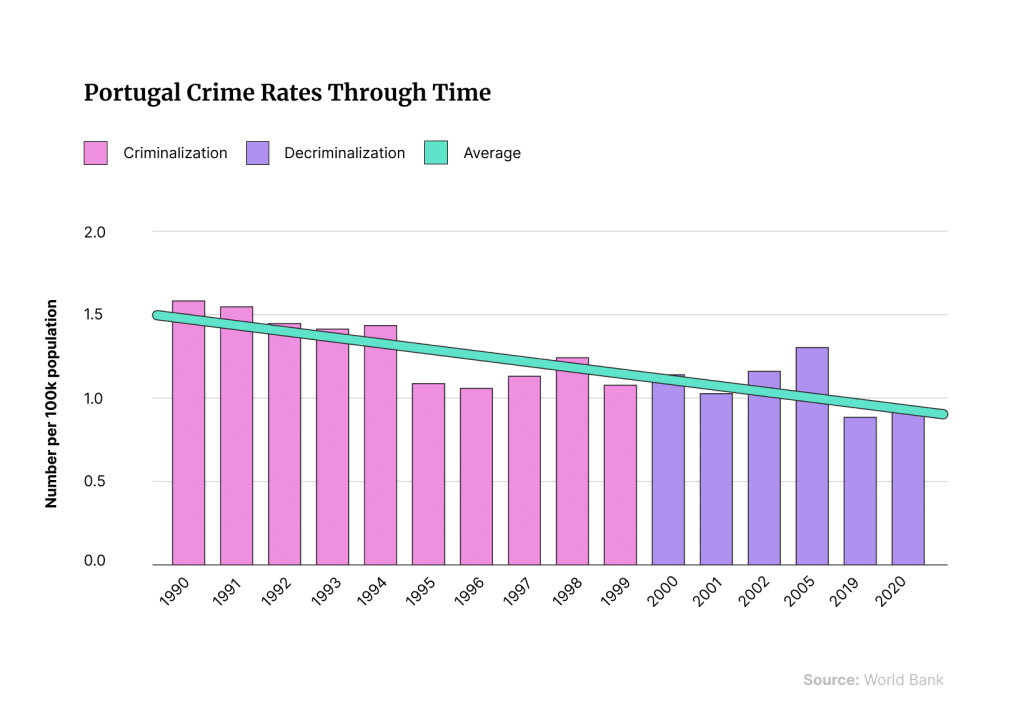
In the 30 years shown in this graph, Portugal’s crime rates saw a 41.7% reduction in overall crime. After drug decriminalization in 2000, data shows increased crime rates in 2002 and 2005. However, by the end of 2020, crime rates were reduced by 10.1%.
How Decriminalization Affects the Prison Population
Removing the burden of placing consumers of drugs in prison has drastically helped the country. In most years before 2001, arrests of drug consumers outpaced that of traffickers and trafficker-consumers by at least double [1]. In the years proceeding the shift, there was little or no change to the number of arrests for the latter two groups and a total reduction of the former.
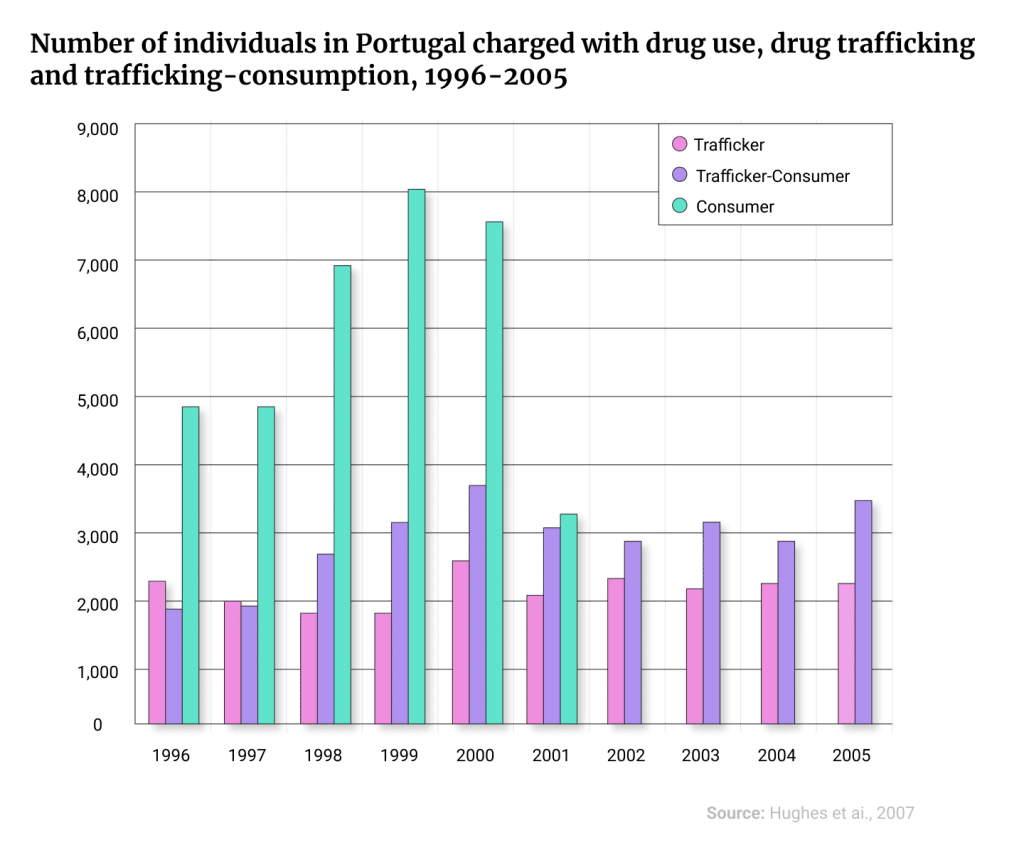
Without these changes to legislation, it is hard to imagine a world in which the Portuguese prison population could have survived. Even today, Portugal faces a significant problem with prison overcrowding [2].
While the decriminalization of drugs doesn’t seem to have had a major effect on the number of prisoners, that doesn’t mean it has had no effect. In 2001, over 40% of the prisoners served time for drug offenses — in 2021, this number decreased to 19.4% [3].
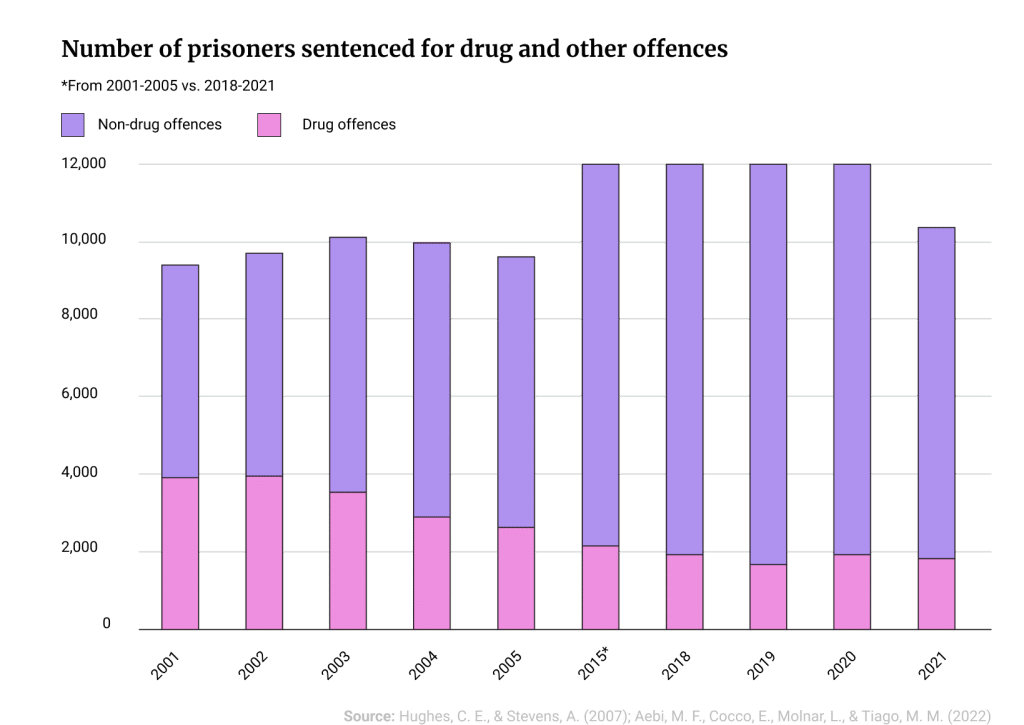
With an average of around 18.1% among European countries, Portugal has reached a place of being in line with the rest. As a result, the population of prisons in Portugal is different. Less than 4% of the prisoners in Portugal have a sentence length of less than one year — compared to an average of 14.5% in European countries.
While there are pros and cons to that final stat, it points to the fact that the prisons aren’t full of people committing minor offenses. Our jails are also overcrowded, but we fill them with people we arrest for simple possession and other petty crimes.
How Decriminalization Compares to Legalization
Our two weeks in Europe ended with four days in Amsterdam. From our Airbnb, I was within a 10-minute stroll from the nearest coffee shop where I could freely purchase hash, marijuana, and (if you insist) coffee.
Later on, I dipped into a smart shop where I bought psychedelic truffles packed in a modern, minimalist jar. Both operations sold freely and legally, and neither asked me how much money I had in my bag or if I would travel with them to a second location to purchase drugs.
In Portugal, I never felt as though my life or health was in danger, but I knew that I had to practice common sense. Don’t buy from people approaching you in crowded areas, don’t flash your money or open your bag if you don’t need to, and never go to a second location to buy drugs from a stranger.
If I had followed that man, he likely would have relieved me of my belongings, perhaps at knifepoint, and ran off. If I refused to comply, I might have received a black eye, but I don’t imagine I would have died or undergone much in the way of violence.
Decriminalizing drugs incentivizes people away from violent crime in drug deals. There are plenty of ways to make money in the drug trade (or the fake drug trade) without drawing the attention of the police. While I can’t go up to an officer and tell him that I got scammed out of a drug deal, I could approach them about getting jumped or threatened.
Related: Buying Drugs in Portugal: The Effect of Decriminalization on Clandestine Sales
Moving Towards Legalization
One of the most significant contributors to the “opiate crisis” comes from drugs mixed with opiates (like fentanyl) without the user’s knowledge. Most people who use drugs have a pretty good understanding of how to do so safely – especially for their drug of choice.
Legalization and regulation are the only way to truly ensure that the people who use drugs can do so safely. By coupling a shift in legislation with a push for public health and harm reduction, we can address problematic use in an environment where the drug user is safe.
In America, even someone with the money and reputation of Mac Miller isn’t safe from an accidental overdose. Whether you want to believe that the recreational use of opiates is a choice people should have the right to make or not, the facts of his story remain.
If he had purchased the drug he intended to, he would be alive today. Some drugs may have a higher likelihood of problematic use, but nobody is safe if users aren’t even sure what drug they’re getting.
What Can We Learn From Portugal’s Drug Policy?
Portugal’s decriminalization of drugs marks a vital step in turning the tide on the drug war, but it has felt stagnant since. There is plenty of work to do outside of simply decriminalizing the usage of substances.
A policy with its citizens at heart must also take proactive measures toward harm reduction. While needle exchange services are prominent in Portugal, it could add consumption rooms, free mobile drug testing labs/kits, education, and psychological services.
These policies protect the drug user instead of simply squashing drug use altogether. If there’s one thing that the war on drugs has taught us, it’s that the war is an absolute failure – in any sense.
If the goal we share is to reduce the number of people problematically using a drug, we have to address the person, not the drug.
In fifty years, the war on drugs has built up to a budget of over $1 Trillion total, and what has changed? Nearly every drug from the 70s is still around today, more accessible to find and more potent than ever.
The biggest conclusion to gain from Portugal is that there is no benefit in criminalization. While Portugal’s methods may not go quite far enough, their actions have translated to actual results for crime rates and prison populations. If they were still criminalizing personal users of drugs, their prisons would be beyond a breaking point by now.
There is no reason to suspect that American crime rates will increase from similar actions to that of Portugal. While the two have very different populations, land sizes, and governments, criminalizing the people who use drugs is never a solution that works.
References
- Hughes, C. E., & Stevens, A. (2007). The effects of the decriminalization of drug use in Portugal.
- Torres, A., Mendes, R., Gaspar, S., Fonesca, R. B., Oliveira, C., & Dias, C. (2016). Inquérito Nacional sobre Comportamentos Aditivos em Meio Prisional. Volume I: Caracterização da população prisional, crimes cometidos e dependências face às drogas, bebidas alcoólicas e jogo a dinheiro. Serviço de Intervenção nos Comportamentos Aditivos e nas Dependências (SICAD).
- Aebi, M. F., Cocco, E., Molnar, L., & Tiago, M. M. (2022). SPACE I – 2021 – Council of Europe Annual Penal Statistics: Prison populations. Council of Europe.

